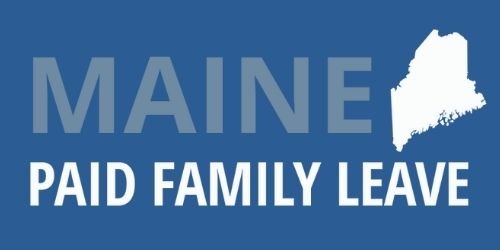Q&A: The ‘enormous health benefits’ of paid leave
During a learning session for the Maine Legislature last week hosted by the Maine Paid Leave Coalition, we were lucky enough to hear from two national experts on paid family and medical leave: Udochi Onwubiko, managing director for economic justice at the National Partnership for Women & Families, and Brianna Keefe-Oates, a postdoctoral research fellow at the Portland-based Roux Institute at Northeastern University.
Onwubiko and Keefe-Oates answered some questions about paid family and medical leave - from the specifics of how paid leave improves the health and wellbeing of families of all types, to what we can do to support Maine’s new paid leave program.
Do you have more questions about paid leave? Don’t hesitate to reach out via mainefamilyleave.org.
Q: What motivated you to get involved in advocating for paid family and medical leave, and why do you believe it's such an important issue?
Brianna Keefe-Oates: I became interested in this topic when I was pregnant with my first child - I was working part-time and studying for my PhD. Trying to figure out how I was going to navigate the time off that I would need to recover and learn how to take care of my baby, while also attending classes and preparing my dissertation research was stressful.
On the one hand, I recognized how lucky I was that I had a flexible schedule that allowed my baby to stay with me while working and studying. On the other hand, I didn't really have any time "off", and the stress of taking care of my baby while also juggling work and school took a toll and meant I let my own health go by the wayside. As I experienced this, I started researching the impact of different kinds of paid leave policies and configurations on the health of birthing people.
Q: Walk us through what can happen when a person without access to any form of paid leave has to take days or weeks off from work due to illness or injury, the birth of a child, or to care for a loved one. How can their lives be negatively impacted?
Udochi Onwubiko: We know that when workers have unmet needs for leave for their own serious health conditions – the most common need for leave – that workers may often delay or forgo medical treatment. And when workers can’t take leave to care for a family member, that family member also might delay or forgo medical treatment. In either case, that delay can be disastrous and lead to worse health outcomes for workers and their loved ones.
Q: Conversely, how can those negative impacts be mitigated by access to paid leave?
Brianna Keefe-Oates: The research shows that there can be enormous health benefits to paid leave. Paid leave policies have been shown to reduce respiratory infections, like RSV, in babies, likely because their parents don't have to put them in daycare as soon. Paid leave policies are also associated with longer breastfeeding, which is beneficial for the baby. For the person who gave birth, paid leave policies can help them take a longer leave after the birth of their child to take care of themselves and their babies. One study I did found that people who were able to take a longer leave were more likely to attend a postpartum care visit, which is so crucial to their long term health and wellbeing.
Q: What do you think it’ll take to make sure paid leave is available to everyone, no matter where they work or what their background is?
Udochi Onwubiko: We have clear evidence that paid family and medical leave benefits workers' economic security and health. We know that it benefits businesses. We have proven models from states. There’s extremely strong support from voters. We need policymakers to act to ensure every worker has access to comprehensive paid leave benefits. It’s critical that policymakers hear directly from workers on what paid leave would mean to them and how lack of paid leave impacts them.
Have a story to tell? Visit our paid leave story form and join the conversation!

